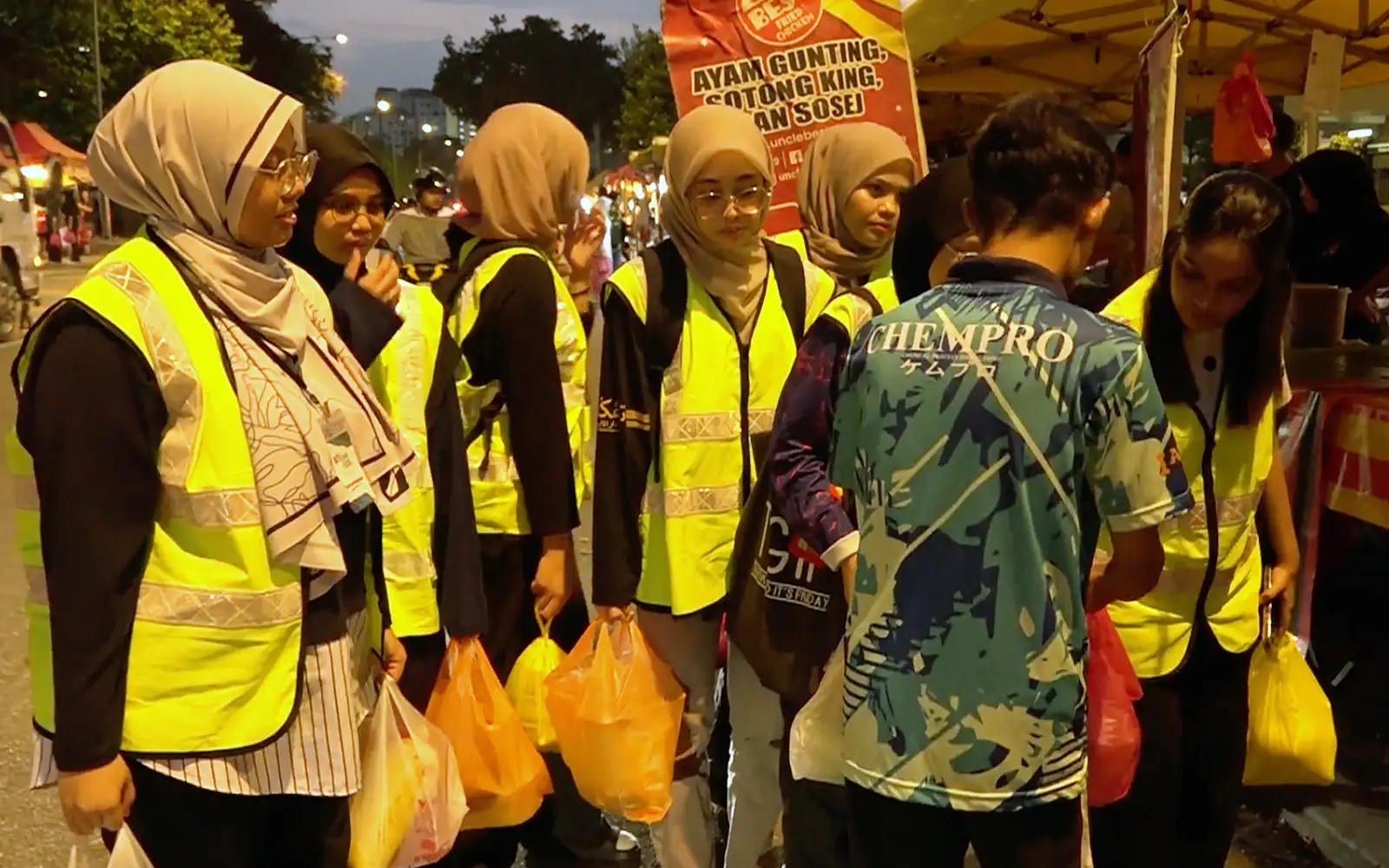
KUALA LUMPUR: During Ramadan, Muslims nationwide savour their favourite delicacies, whether at bustling bazaars or lavish buffet spreads.
However, it is no surprise that food waste is often a byproduct.
According to the Solid Waste Management and Public Cleaning Corporation, over 22,732.61 tonnes of food waste was disposed of in Kuala Lumpur during Ramadan in 2023, a number that is expected to increase each year.
As such, organisations such as Gema Malaysia Youth Organisation (Gema) and Kechara Soup Kitchen have stepped up not only to solve the problem of Ramadan food waste, but also to extend a helping hand to the less fortunate.
Gema’s MySaveFood Programme
Vikneshvaran Tanabalam, who is in charge of Gema’s MySaveFood initiative in Kuala Lumpur, said it involved 55 Ramadan bazaars nationwide.

A total of 25 volunteers at the Tasik Sri Rampai Ramadan bazaar, most of whom are Malays, quickly break their fasts around 7.30pm before springing into action, collecting excess food from vendors as they close shop.
“After collection, we bring the food back to the gathering point at Abu Ubaidah Al Jarrah Mosque, where we will weigh, organise, and label the food accordingly,” Vikneshvaran told FMT.
This food is then left at designated counters at the mosque, ready to be taken by those who are less fortunate.
Vikneshvaran expressed concern over the rise in food waste. He said there was an increase from 300kg to 450kg daily on average in bazaars such as the one in Kampung Baru, which he attributed to the rise in the number of vendors.

Meanwhile, Ahmad Adam Ismail Abd Hafi, head of volunteers for the Tasik Sri Rampai Ramadan bazaar, suggested that vendors make more accurate calculations during food preparation in order to reduce excess food.
“If they find themselves with leftovers on the first day of sales, perhaps they could adjust the quantities they sell in the following days,” he said.

Fadillah Husnidar Pohan, 36, a beneficiary of the initiative, expressed her appreciation for the variety and quality of the meals provided.
“I really enjoy the food available here because there’s such a wide range of dishes, drinks, and kuih. It significantly eases our financial burden as well,” she said.
Sharil Maon, a regular visitor at the mosque, believed that the initiative was vital for those facing financial hardship.
“Many of us can feel that the economy is bad and prices for food items have increased too. Through this initiative, those who are less fortunate can savour dishes they would otherwise be unable to afford,” he said.
Kechara Soup Kitchen
On the hotel front, Kechara Soup Kitchen has gathered over a tonne of food within the first two weeks of this year’s Ramadan season.
Kechara Soup Kitchen operations director Justin Cheah says volunteers collect excess food from 24 hotels across KL every day during Ramadan, which is then delivered to distribution centres.
These distribution centres range from homeless shelters to orphanages, with Kechara’s charity partners allocating the food to people under their care.
Cheah said one way Malaysians could help was by linking Kechara with food manufacturers that might have excess stock to donate.
“You can help not just in the month of Ramadan. Any help is most welcome at any time of the year, be it through donations or volunteer work,” he said. - FMT
No comments:
Post a Comment
Note: Only a member of this blog may post a comment.